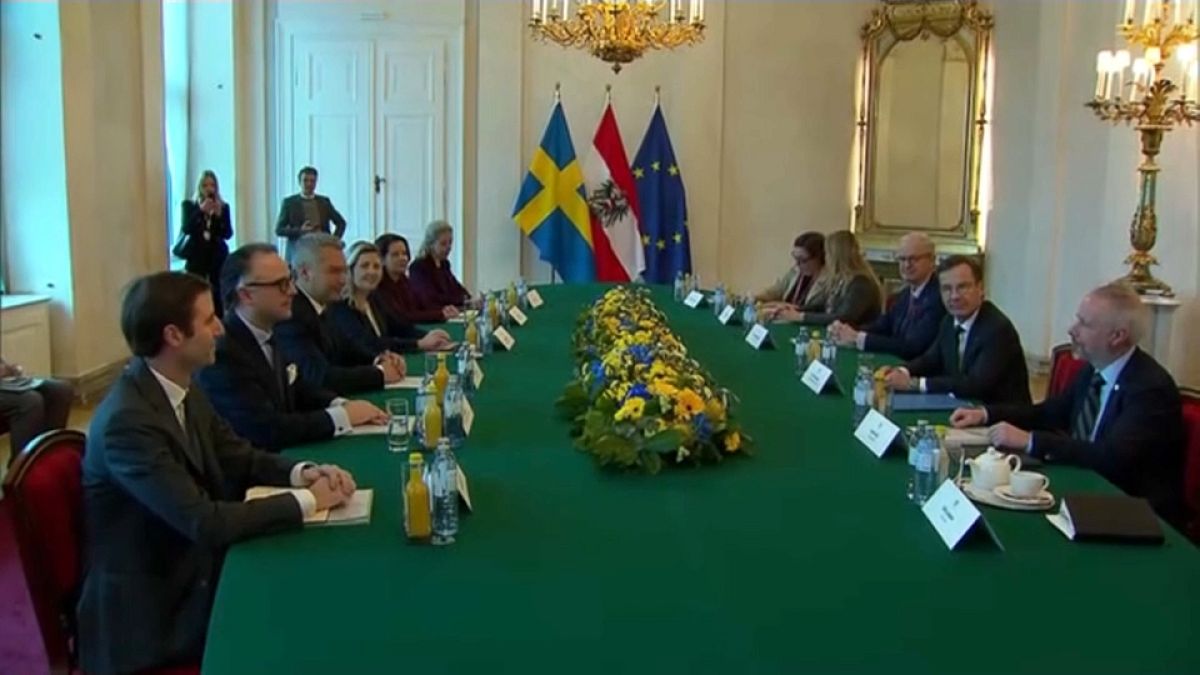Austrian Chancellor Karl Nehammer and Swedish Prime Minister Ulf Kristersson recently gathered in Vienna to celebrate 30 years of EU membership for their respective nations. During their meeting, the two conservative leaders emphasized the need for the European Union to address irregular migration more effectively. They called for stronger border security and better mechanisms for returning migrants whose asylum applications are denied. This issue has become a significant concern for the EU, impacting election results and giving rise to far-right parties across the bloc.
Kristersson proposed the establishment of “return hubs” to accelerate the removal of irregular migrants, a concept that was previously discussed by EU leaders last October. He commended Austria for aligning with Sweden on this issue and emphasized the importance of taking proactive measures to address the challenges posed by irregular migration. Nehammer hailed Sweden as an invaluable ally in the fight against illegal migration, highlighting Kristersson’s efforts to keep this issue at the forefront of the EU’s agenda.
The meeting in Vienna marked the 30th anniversary of Austria’s, Sweden’s, and Finland’s accession to the EU, which expanded the bloc to 15 member states. Back in the 1980s, when these nations sought to join the EU, they were officially neutral during the Cold War and had not aligned themselves with the West. The decision to join the EU was driven by economic considerations, as full membership allowed them to participate in the single market. However, public opinion in Finland, Sweden, and Norway (which also negotiated to join the EU) was initially skeptical of European integration, with concerns about protecting their economic interests and unique societal models.
The accession negotiations were challenging, particularly regarding issues such as agriculture, regional aid, budgetary matters, and fishing quotas. All four nations put their accession agreements to a popular vote, with Finland and Austria overwhelmingly voting in favor, Sweden narrowly approving, and Norway ultimately rejecting membership. Despite the initial hesitations, all three nations that joined the EU on the same day have benefitted from their membership and have actively contributed to shaping the bloc’s policies and priorities over the past three decades.
As Austria and Sweden mark their 30th anniversary in the EU, Chancellor Nehammer and Prime Minister Kristersson are reinforcing their commitment to addressing pressing challenges, such as irregular migration, together. By advocating for stronger border security and more efficient processes for returning migrants, they are seeking to enhance the EU’s ability to manage migration flows and ensure the safety and security of its borders. The celebration of this significant milestone serves as a reminder of the importance of collaboration and solidarity among EU member states in addressing shared challenges and advancing common goals.











